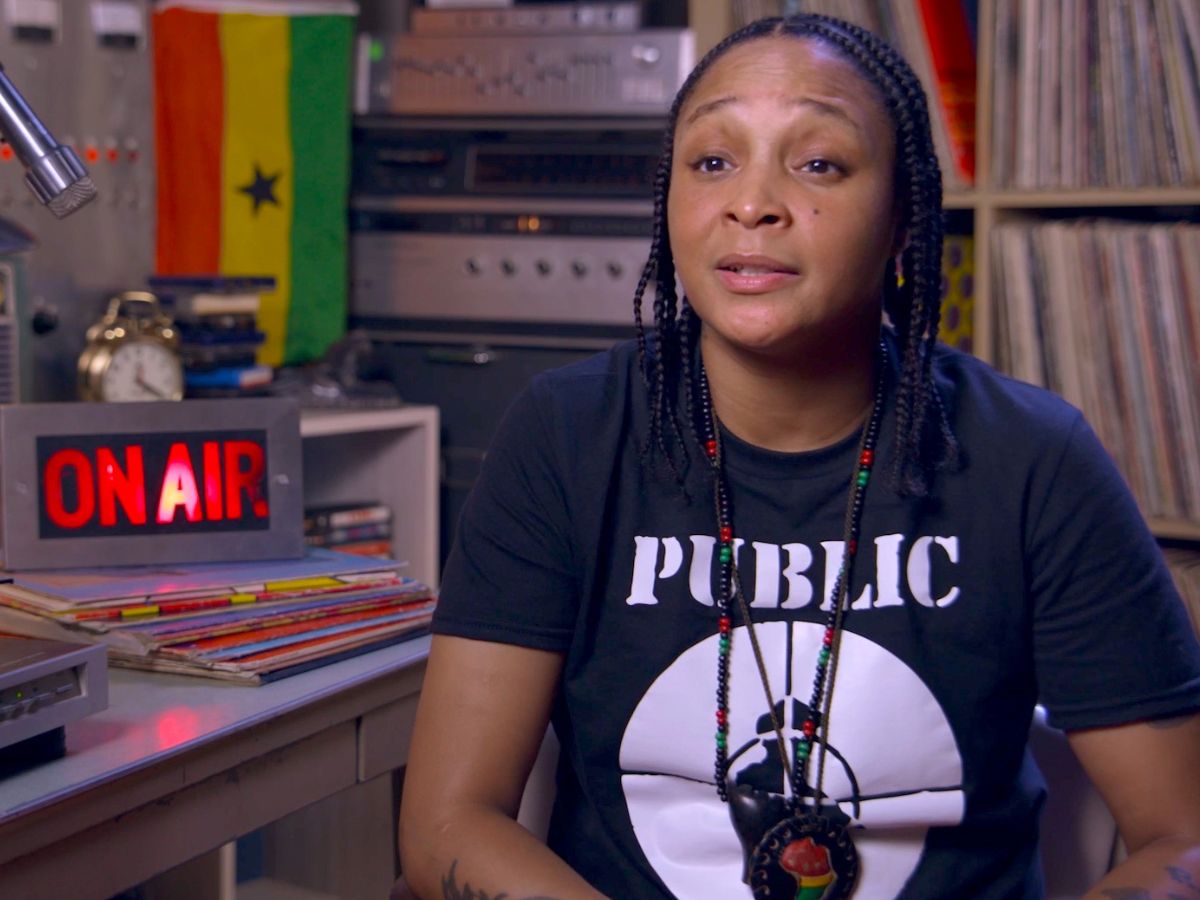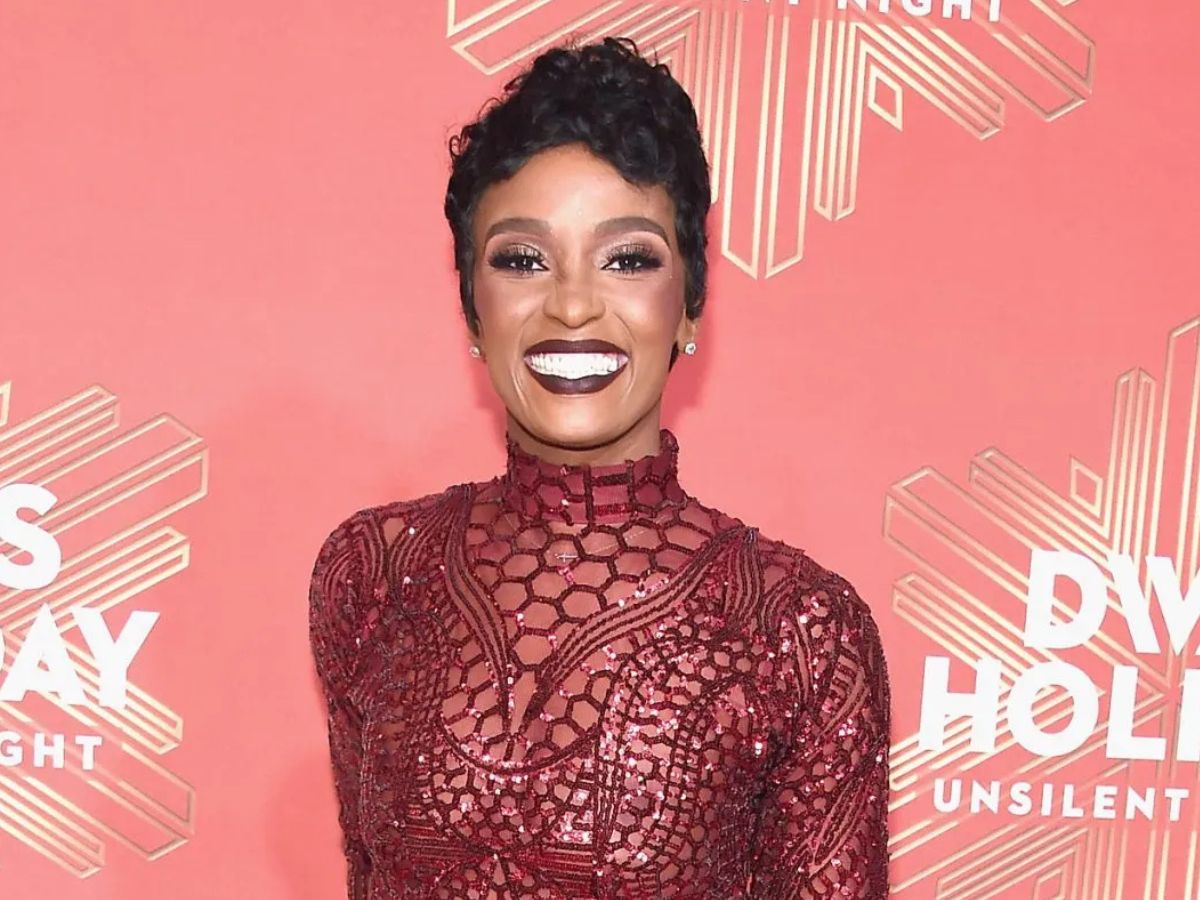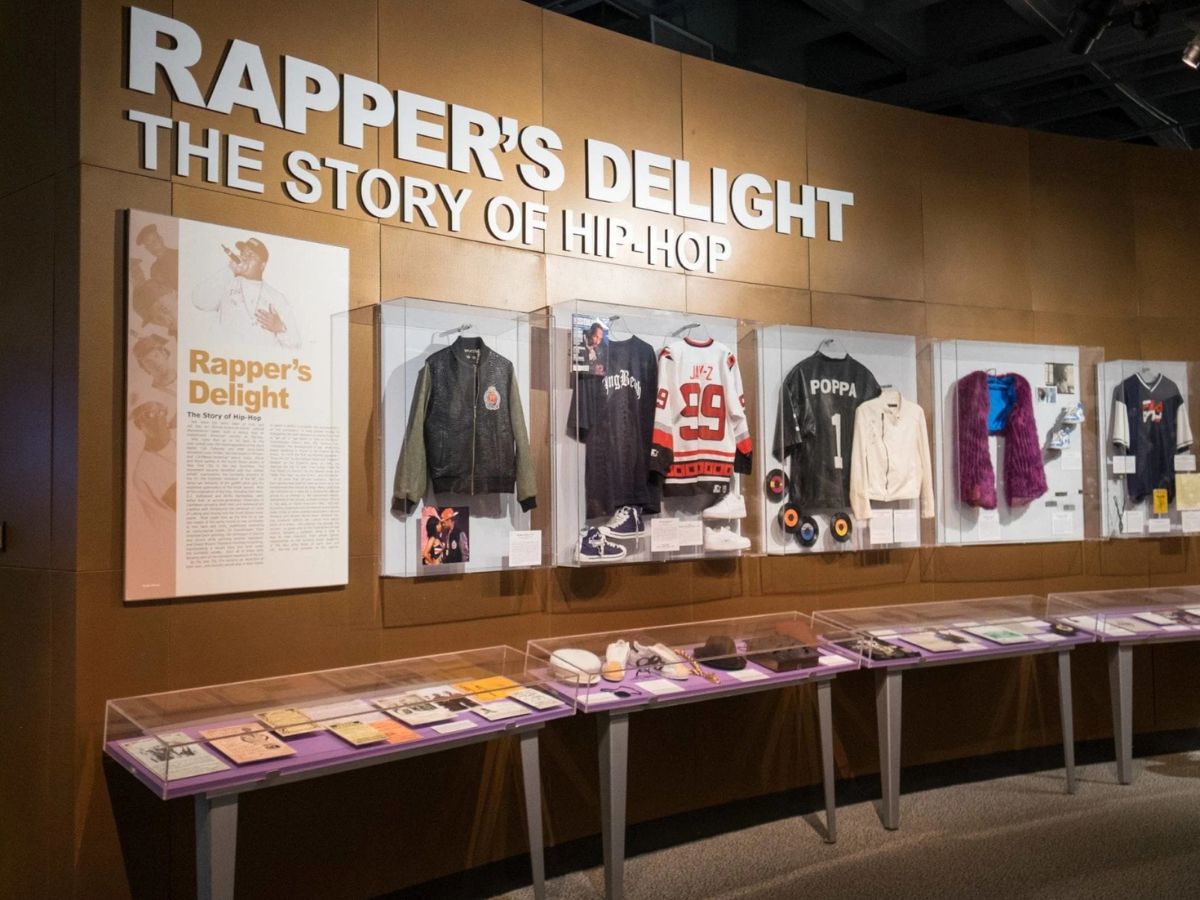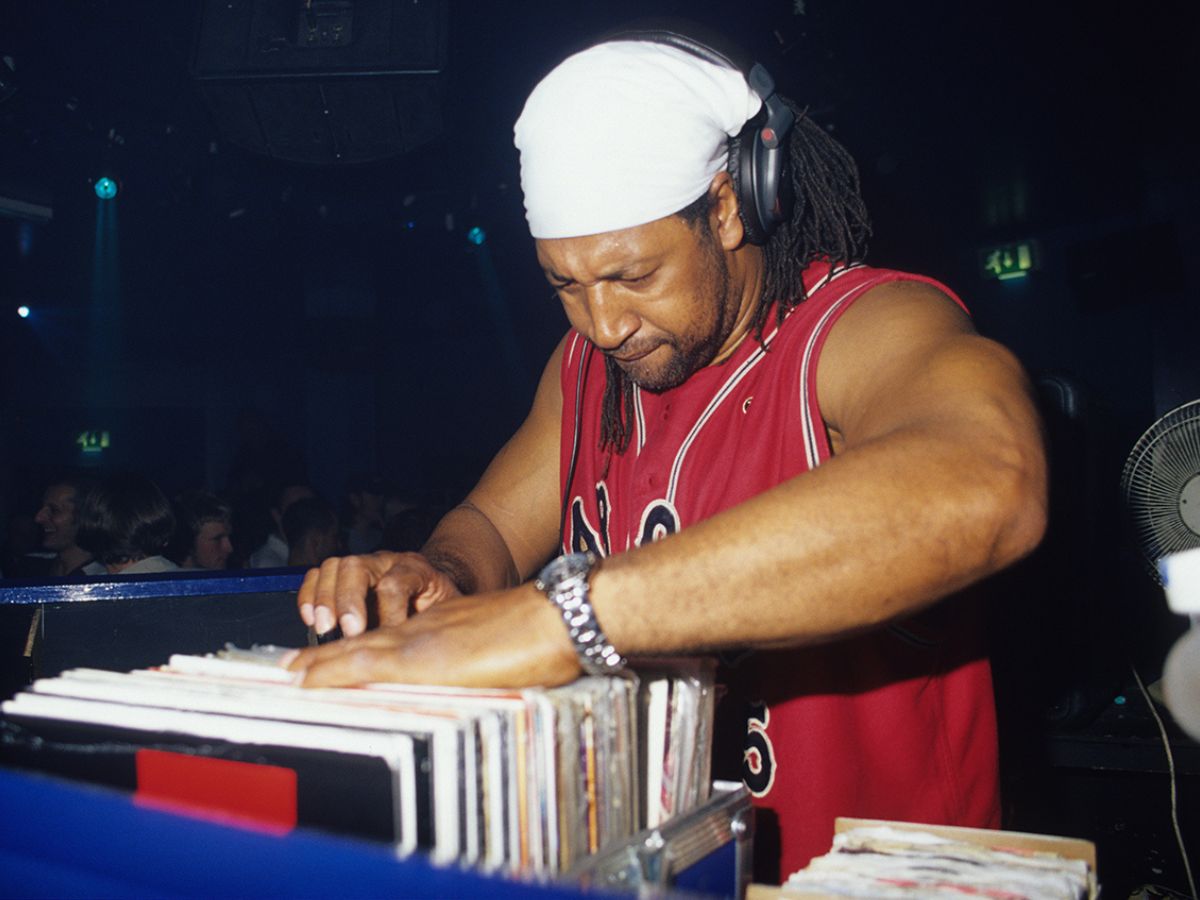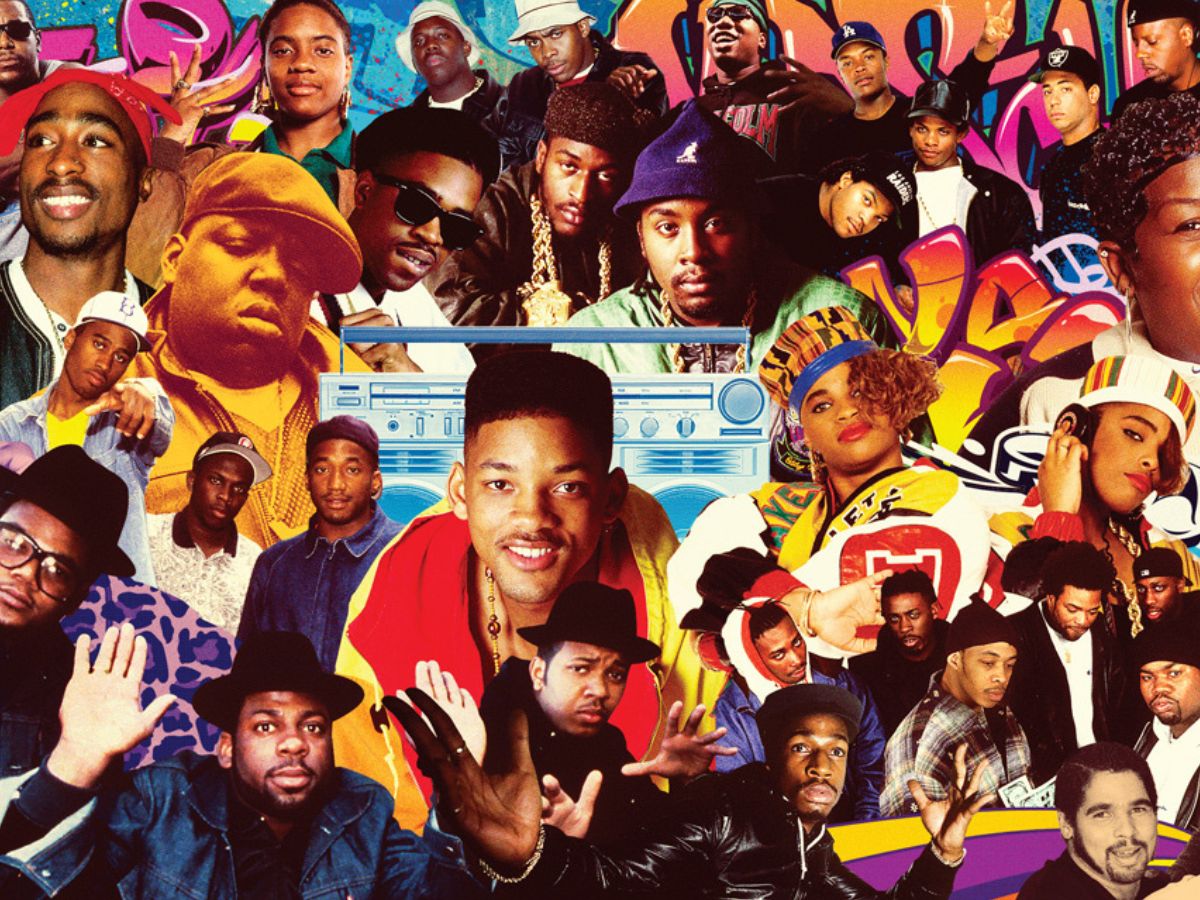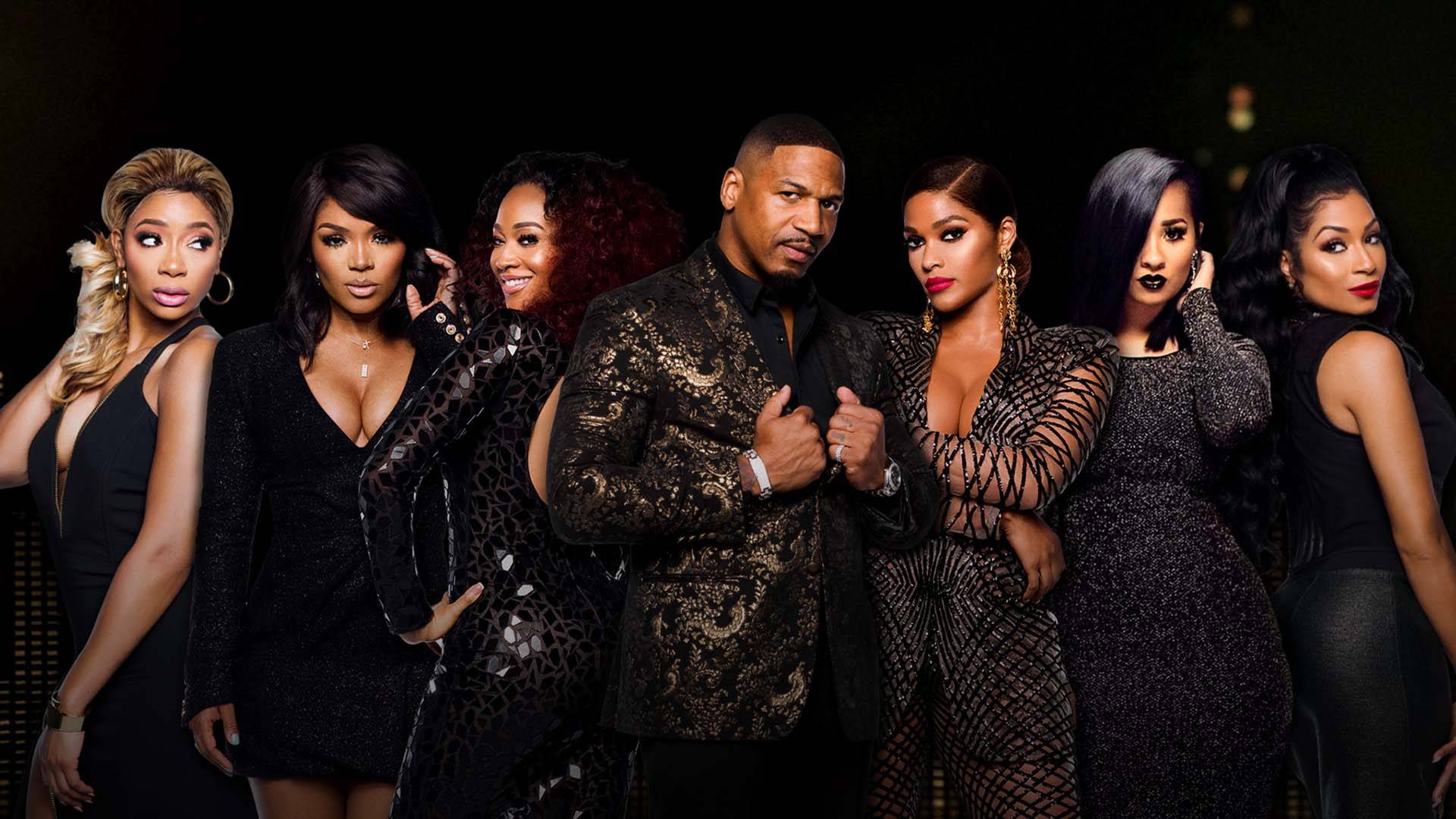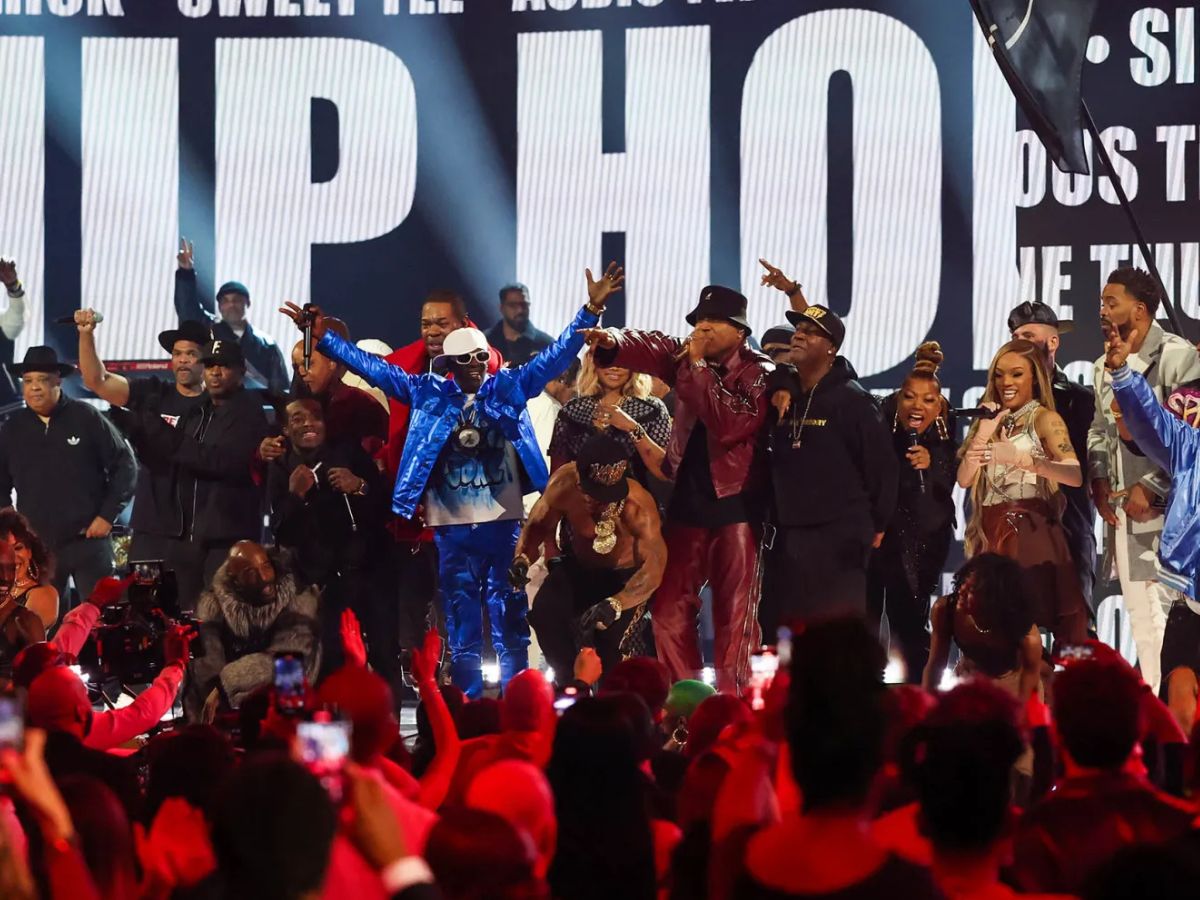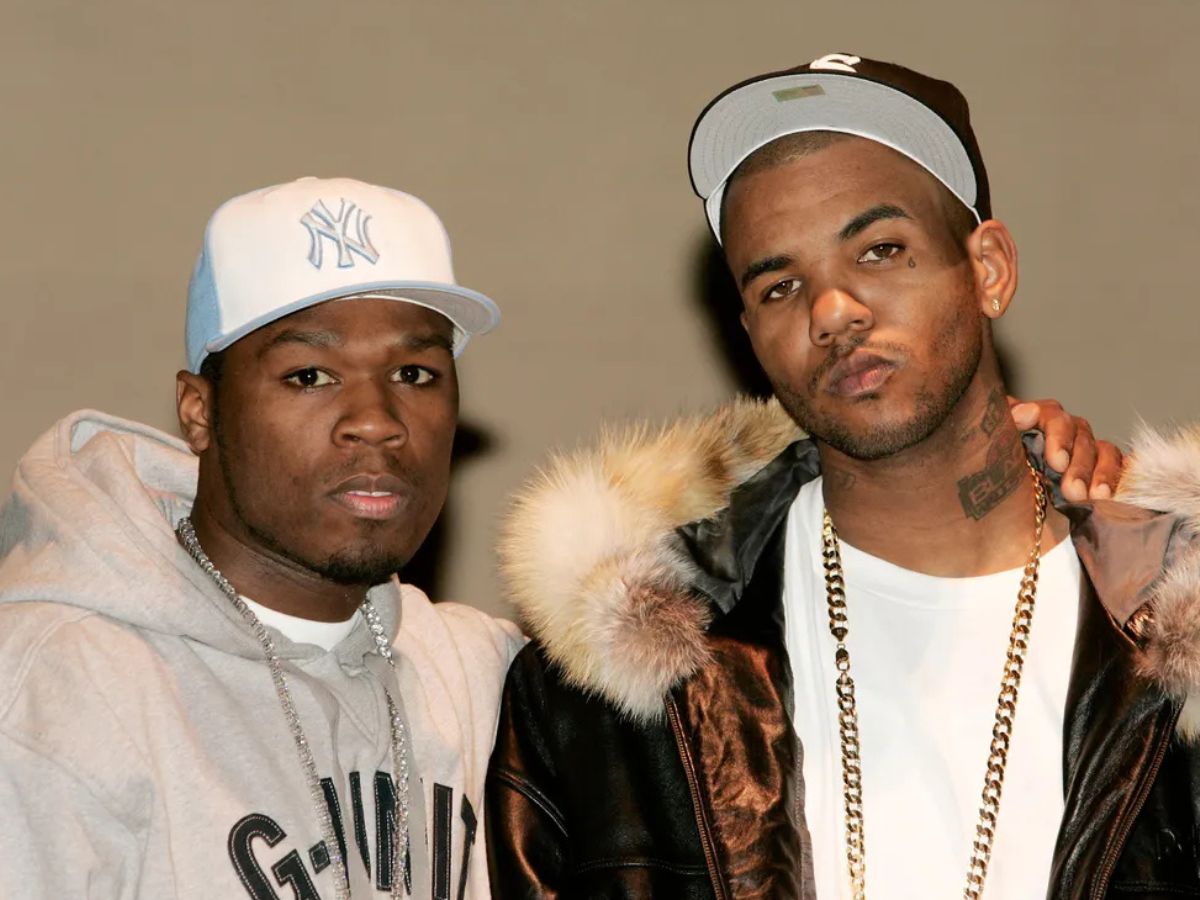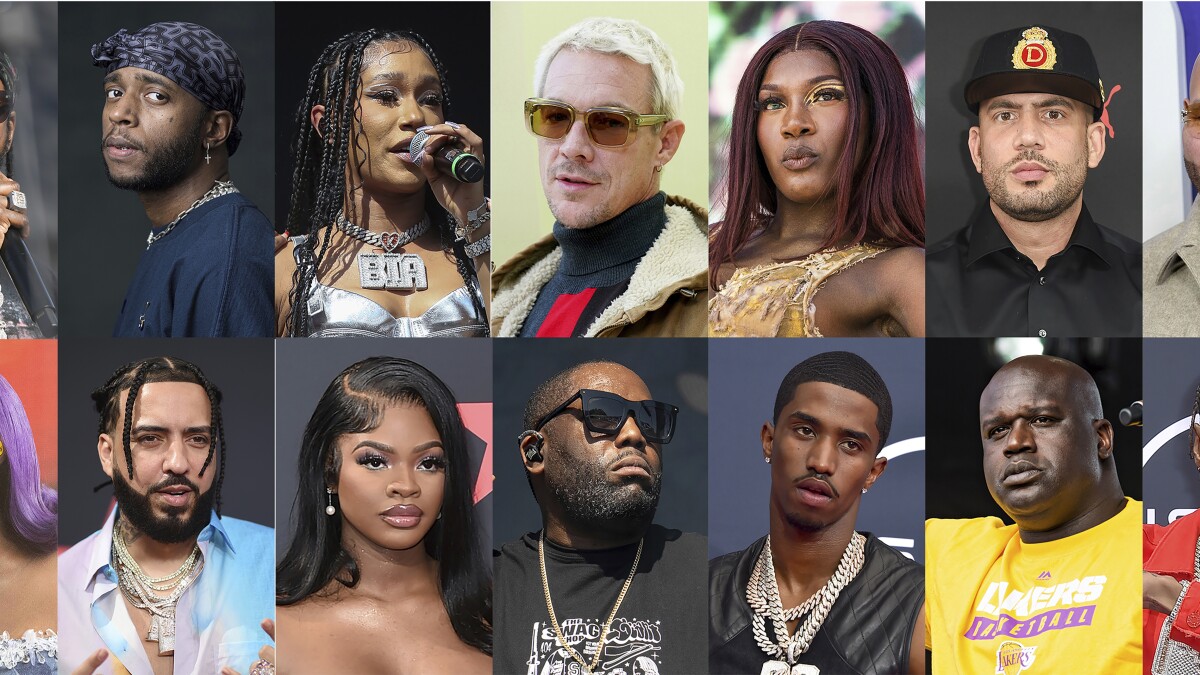

Hip Hop
Who Is The Number One Hip Hop Artist
Published: December 30, 2023
Discover the hip hop sensation that has taken the music industry by storm. Find out who holds the crown as the number one hip hop artist, dominating the charts and captivating audiences worldwide.
(Many of the links in this article redirect to a specific reviewed product. Your purchase of these products through affiliate links helps to generate commission for AudioLover.com, at no extra cost. Learn more)
Table of Contents
Introduction
Hip hop, a cultural and musical movement that emerged in the 1970s in the Bronx, New York, has become one of the most influential and popular genres in the world. Rooted in the expressive forms of African American and Latino communities, hip hop encompasses elements such as rap music, DJing, breakdancing, and graffiti art. With its raw lyrics and infectious beats, hip hop has the power to captivate listeners and convey powerful messages about identity, social issues, and personal experiences.
Over the years, numerous talented artists have emerged in the hip hop scene, each bringing their unique style, flow, and storytelling abilities. From the old school pioneers like Grandmaster Flash and Run-DMC to contemporary stars like Kendrick Lamar and Drake, hip hop has continuously evolved and pushed creative boundaries. However, there is a never-ending debate about who is the number one hip hop artist of all time.
Determining the number one hip hop artist is subjective, as it depends on individual preferences, musical tastes, and cultural influences. It involves considering various criteria, including commercial success, critical acclaim, cultural impact, and artistic innovation. In this article, we will explore the top contenders in the hip hop industry, analyze their impact and influence, examine their accomplishments, and evaluate their cultural relevance and artistic contributions.
By delving into the world of hip hop, we aim to shed light on the diverse talents that have contributed to the genre’s growth and longevity. Whether it’s the lyrical prowess of Nas, the boundary-pushing creativity of Kanye West, or the activism of artists like J. Cole, hip hop has consistently provided a platform for voices that shape and reflect our society.
So, strap on your headphones and join us on this journey as we explore the fascinating world of hip hop and seek to understand who truly deserves the title of the number one hip hop artist.
Criteria for Determining the Number One Hip Hop Artist
Determining the number one hip hop artist is no easy task. It requires a comprehensive evaluation of several key factors that contribute to an artist’s impact, influence, and overall significance within the genre. While opinions may vary, here are some of the criteria frequently used to make this determination.
- Artistic Skill and Talent: The number one hip hop artist should exhibit extraordinary skill and talent in their craft. This includes their ability to deliver complex and captivating lyrics, masterful flow, unique vocal delivery, and innovative musical production.
- Impact and Influence: The impact and influence an artist has on the hip hop industry and popular culture are crucial considerations. This includes their ability to shape trends, inspire future generations of artists, and contribute to the development and evolution of the genre.
- Commercial Success: While success cannot be the sole determinant, an artist’s commercial achievements play a significant role in establishing their prominence. This includes record sales, chart performance, sold-out tours, endorsements, and mainstream recognition.
- Critical Acclaim: Recognition from critics and peers is a testament to an artist’s quality and artistic merit. Consistent praise from music journalists, awards, and accolades can indicate the artist’s impact on the genre and their ability to create impactful and timeless music.
- Innovation and Evolution: The number one hip hop artist should demonstrate a willingness to push artistic boundaries, challenge conventions, and bring something new to the table. They should be known for their innovation and ability to reinvent themselves throughout their career.
- Cultural Relevance: An artist’s ability to connect with their audience on a cultural level is paramount. This includes their lyrics addressing social issues, reflecting the experiences of their community, and providing a voice for marginalized communities.
By considering these criteria, we can begin to assess the contenders for the number one hip hop artist title. However, it is important to note that these criteria are not definitive, and different individuals may prioritize certain aspects differently. Ultimately, the number one hip hop artist is a subjective choice that can ignite lively debates and discussions among fans and experts alike.
Top Contenders in the Hip Hop Industry
The hip hop industry has been blessed with an abundance of exceptional talent, making it challenging to narrow down the top contenders for the number one hip hop artist. However, several artists have consistently risen to the forefront, leaving an indelible mark on the genre. Let’s explore some of the prominent contenders:
- Jay-Z: With a career spanning over three decades, Jay-Z has become one of the most respected and successful artists in hip hop. Known for his impeccable lyricism, business acumen, and entrepreneurial spirit, Jay-Z’s discography is a testament to his versatility and longevity in the industry.
- Eminem: Hailing from Detroit, Eminem is widely regarded as one of the greatest rappers of all time. His rapid-fire delivery, clever wordplay, and emotionally charged storytelling have captured the attention of listeners worldwide, earning him numerous awards and critical acclaim.
- Kendrick Lamar: Kendrick Lamar has emerged as a visionary artist, blending thought-provoking lyrics, intricate storytelling, and innovative production. His introspective and socially conscious approach has not only resonated with fans but has also garnered widespread critical acclaim and multiple Grammy awards.
- Drake: Known for his infectious hooks, melodic flows, and ability to dominate the charts, Drake has solidified his status as a hip hop heavyweight. With an impressive string of hits and a knack for crafting relatable and introspective music, he has become one of the best-selling artists of the current era.
- Notorious B.I.G.: Despite his untimely death, the impact of the Notorious B.I.G. on the hip hop industry cannot be overstated. With his distinctive flow, vivid storytelling, and larger-than-life persona, he helped redefine East Coast rap and remains a timeless figure in the genre.
While these artists are often mentioned among the top contenders, it’s important to recognize that there are many other influential and talented artists who have also left an indelible mark on hip hop. Each artist brings their unique style, perspective, and contributions to the genre, making it a rich and diverse landscape.
Ultimately, the debate over the number one hip hop artist is subjective and will continue to spark passionate discussions among fans and experts. As the genre evolves and new talents emerge, the list of top contenders will undoubtedly evolve. Nevertheless, these artists have undeniably made a lasting impact on the hip hop industry and have solidified their place among the genre’s elite.
Analyzing the Impact and Influence of Hip Hop Artists
Hip hop artists have had a profound impact on music, culture, and society as a whole. Their narratives, lyrical dexterity, and ability to articulate the experiences of marginalized communities have transformed the way we think about music and the power it holds. Let’s delve into the impact and influence of hip hop artists:
Cultural Influence: Hip hop has transcended its musical boundaries to become a cultural movement. Artists like Public Enemy, N.W.A, and Kendrick Lamar have used their music as a platform to address social and political issues, shedding light on systemic racism, police brutality, and inequality. Through their lyrics and activism, these artists have sparked important conversations and advocated for change.
Breaking Barriers: Hip hop artists have shattered racial and socio-economic barriers, providing a platform for marginalized voices to be heard. Artists like Jay-Z, Eminem, and Queen Latifah have achieved mainstream success, challenging stereotypes and showcasing the talent and creativity within the hip hop community.
Musical Innovation: Hip hop artists have consistently pushed the boundaries of music, blending genres, and experimenting with new sounds. Pioneers like Grandmaster Flash and DJ Kool Herc revolutionized DJing techniques, while producers like Dr. Dre and Kanye West introduced innovative beats and sampling techniques. This constant musical innovation has not only influenced hip hop but also impacted popular music as a whole.
Global Influence: Hip hop has become a global phenomenon, transcending cultural and linguistic barriers. Artists like Eminem, Drake, and BTS have amassed massive international fan bases, highlighting the universal appeal and power of hip hop. The genre has been embraced by artists and communities worldwide, leading to the development of unique regional styles and flavors.
Entrepreneurial Ventures: Hip hop artists have become successful entrepreneurs, branching out into various industries outside of music. Artists like Jay-Z, Diddy, and Dr. Dre have built empires through their record labels, clothing lines, and investments. Their business acumen has not only paved the way for financial success but has also created opportunities for other aspiring artists and entrepreneurs.
The impact and influence of hip hop artists extend far beyond the bounds of music. Their ability to mobilize communities, challenge societal norms, and inspire change has made hip hop a powerful force. Whether through their activism, innovation, or cultural contributions, hip hop artists continue to shape popular culture and leave an indelible legacy for future generations.
Examining the Success and Achievements of Hip Hop Artists
Hip hop artists have achieved remarkable success and have garnered numerous accolades throughout the history of the genre. From record-breaking album sales to Grammy awards, their achievements demonstrate their talent, hard work, and impact on the music industry. Let’s examine some of the notable success and achievements of hip hop artists:
Commercial Success: Hip hop artists have achieved unprecedented commercial success, consistently topping charts and dominating the music industry. Superstars like Jay-Z, Kanye West, and Drake have achieved multi-platinum album sales, with their projects reaching the pinnacle of success and resonating with a global audience.
Grammy Awards: The Grammy Awards, the highest honor in the music industry, have recognized the achievements of hip hop artists. From Lauryn Hill becoming the first female hip hop artist to win Album of the Year to Kendrick Lamar’s multiple wins across various categories, the Grammys have celebrated the talent and artistry of hip hop artists.
Record-Breaking Hits: Hip hop artists have produced chart-topping hits that have broken records and achieved unparalleled success. From Lil Nas X’s breakout hit “Old Town Road” breaking the record for the longest-running number one song on the Billboard Hot 100 chart to Drake’s ability to consistently dominate the charts with multiple hit singles, their achievements demonstrate their popularity and influence.
Critical Acclaim: Hip hop artists have received critical acclaim for their exceptional artistry and contributions to the genre. Albums like Nas’ “Illmatic,” Kendrick Lamar’s “To Pimp a Butterfly,” and OutKast’s “Aquemini” have been widely praised by music critics and are often regarded as some of the greatest albums of all time, showcasing the genre’s depth and artistic merit.
Impact on Pop Culture: Hip hop artists have made a profound impact on popular culture, influencing fashion, language, and even politics. Artists like Run-DMC and their iconic Adidas tracksuits, or artists like A$AP Rocky setting trends in the fashion world, have solidified hip hop’s position as a cultural phenomenon beyond just the music.
Legacy and Influence: The success and achievements of hip hop artists have resulted in a lasting legacy and influence on future generations of musicians and artists. Artists like Tupac Shakur and The Notorious B.I.G. continue to inspire and influence aspiring artists with their raw talent, powerful lyrics, and impact on the genre.
The success and achievements of hip hop artists are a testament to their talent, dedication, and impact on the music industry. Beyond just commercial success, their recognition and impact on popular culture have solidified their place as cultural icons and trailblazers within the genre.
Evaluating the Cultural Relevance and Artistic Innovation in Hip Hop
Hip hop has always been at the forefront of cultural relevance and artistic innovation, pushing boundaries and reflecting the realities and experiences of diverse communities. It continuously evolves, adapting to societal changes and embracing new forms of expression. Let’s evaluate the cultural relevance and artistic innovation in hip hop:
Cultural Relevance: Hip hop has been a powerful tool for marginalized communities to express their experiences and make their voices heard. From addressing social issues such as racism, police brutality, and inequality to celebrating cultural identity, hip hop artists have become cultural icons, resonating with listeners who find solace and inspiration in their lyrics.
Political and Social Activism: Hip hop has a long-standing tradition of activism, with artists using their platform to raise awareness and advocate for change. Artists like Public Enemy and Kendrick Lamar have become known for their politically charged lyrics, challenging the status quo and sparking important conversations about social justice.
Artistic Innovation: Hip hop has consistently pushed the boundaries of artistic innovation, integrating various musical styles and experimenting with new sounds. From the early days of sampling records to the use of electronic beats and intricate production techniques, hip hop has continuously evolved, influencing other genres and shaping the musical landscape.
Lyricism and Storytelling: One of the key strengths of hip hop is its ability to convey powerful messages through lyrics and storytelling. Artists like Nas, Eminem, and J. Cole possess exceptional storytelling abilities, painting vivid pictures of their experiences and offering poignant social commentary. Their focus on lyrical depth and wordplay have elevated the genre to new heights.
Fashion and Cultural Trends: Hip hop has had a significant impact on fashion, often influencing popular trends. From the baggy clothing of the 90s to the streetwear and sneaker culture embraced today by artists like Kanye West and Travis Scott, hip hop has consistently shaped fashion trends and helped define contemporary urban style.
Collaborations and Cross-Cultural Fusion: Hip hop has also fostered collaboration and cross-cultural fusion, bringing together artists from different genres and backgrounds. Collaborations between hip hop artists and musicians in other genres such as rock, pop, and R&B have resulted in groundbreaking and innovative music, breaking down barriers and expanding the artistic boundaries of hip hop.
Hip hop’s cultural relevance and artistic innovation have made it a powerful force in shaping popular culture. From addressing social and political issues to pushing musical boundaries, hip hop has demonstrated its importance as a vehicle for creative expression and as a reflection of the times we live in. Its ability to connect with diverse audiences and continually reinvent itself ensures its enduring impact on the music industry and beyond.
Conclusion
Hip hop, with its rich history and cultural significance, continues to captivate audiences worldwide. Through its powerful lyrics, infectious beats, and innovative style, hip hop has evolved into a global movement that transcends music. While determining the number one hip hop artist remains subjective, it is undeniable that the genre has been shaped by legendary figures who have left an indelible mark on the industry.
From the pioneers of the past, such as Grandmaster Flash and Run-DMC, to the trailblazers of the present, such as Kendrick Lamar and Drake, hip hop artists have continuously pushed boundaries, challenged norms, and provided a voice for marginalized communities. Their artistic skills, impact, and influence have solidified their positions as icons within the genre, each contributing to the growth and evolution of hip-hop in their unique ways.
The success and achievements of hip hop artists, both commercially and critically, highlight their talent and ability to connect with global audiences. It is through their vision, innovation, and dedication that hip hop has become a cultural force that embodies the spirit of rebellion, empowerment, and self-expression.
Moreover, the cultural relevance and artistic innovation of hip hop resonate far beyond the music itself. The genre has become a platform for activism, tackling pressing social issues such as inequality and injustice. By amplifying the voices of marginalized communities, hip hop artists have sparked important conversations and inspired change.
As hip hop continues to evolve and adapt, it will always be intertwined with the ever-changing landscape of music and culture. New artists will emerge, pushing the boundaries of creativity and contributing their unique perspectives to the narrative of hip hop. The debates over the number one hip hop artist will persist, fueled by the passion and dedication of fans and critics alike.
In conclusion, hip hop is a cultural phenomenon that has redefined the music industry and left an indelible imprint on popular culture. The number one hip hop artist may remain a subject of debate, but the impact, influence, and achievements of these artists cannot be denied. Hip hop will continue to evolve, inspire, and empower, ensuring its lasting legacy as one of the most influential genres of our time.

